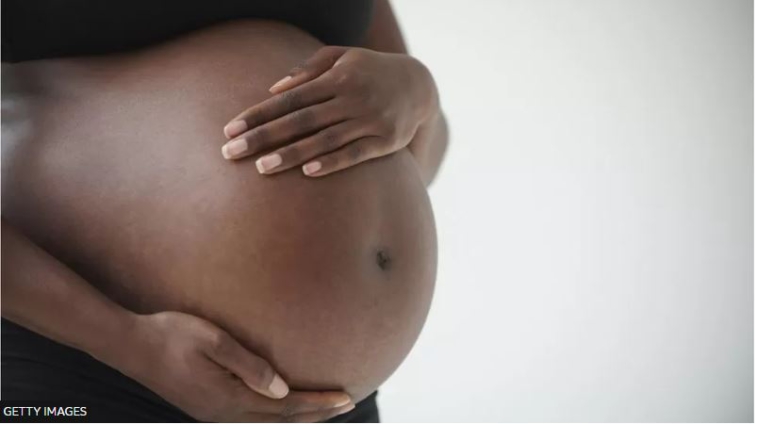It was a hot afternoon in a small village in Ghana’s Savannah Region. Ama, a mother, sat outside folding clothes when her eleven-year-old daughter, A
It was a hot afternoon in a small village in Ghana’s Savannah Region. Ama, a mother, sat outside folding clothes when her eleven-year-old daughter, Abena, ran to her in tears, clutching her stomach and saying she felt unwell. Weeks later, the family received a shocking revelation: Abena was pregnant—despite never having had her first menstruation.
At the clinic, a nurse explained gently, “A girl can become pregnant even before her first period.”
While Abena’s story is rare, it highlights a critical fact many still misunderstand: a girl’s body can release an egg before the first menstrual bleeding occurs. This process, called ovulation, means pregnancy is possible even before menstruation begins.
Startling Global and Ghanaian Statistics
The World Health Organization (WHO) reports that about 21 million girls aged 15–19 in developing countries become pregnant each year, with roughly 12 million giving birth. Pregnancy and childbirth complications are among the leading causes of death for girls in this age group.
In Ghana, adolescent pregnancy is equally concerning. The 2022 Ghana Demographic and Health Survey shows that 15.2% of girls aged 15–19 have ever been pregnant, with higher rates in regions like Savannah and North East. The Ghana Health Service Annual Report (2020) recorded about 110,000 teenage pregnancies that year, making Ghana one of West Africa’s countries with the highest adolescent pregnancy rates.
Among very young adolescents, UNFPA Ghana reported that between 2016 and 2020, 13,444 pregnancies occurred among girls aged 10–14 years. According to the State of World Population Report (2023), “every teenage pregnancy represents a missed opportunity,” as early pregnancy often results in school dropout, early marriage, and long-term health risks.
How Pregnancy Before Menstruation Happens
Understanding puberty helps explain this phenomenon. When puberty begins, the brain sends hormonal signals to the ovaries to prepare eggs. Once an egg is released—a process called ovulation—it can be fertilized if sperm is present, resulting in pregnancy. Menstruation only occurs later if pregnancy does not happen.
Because ovulation occurs before menstruation, a girl can become pregnant even before experiencing her first period.
The youngest known mother in medical history, Lina Medina from Peru, gave birth in 1939 at five years and seven months old. She had precocious puberty, where ovulation begins unusually early. While extreme, her case proves that the body can become fertile at a very young age.
Why This Knowledge Matters for Ghana
Many parents, teachers, and young girls mistakenly believe pregnancy can only happen after menstruation. This misunderstanding contributes to Ghana’s high adolescent pregnancy rates.
Adolescent pregnancy increases risks of maternal complications, such as obstetric fistula, low birth weight, and maternal death. Babies born to adolescent mothers are also more likely to die within their first month compared to babies born to women aged 20–24.
Data from the Ghana Statistical Service show that in 2022, more than 10% of girls aged 15–19 had given birth in ten out of sixteen regions. These numbers highlight the urgent need for education, protection, and empowerment before puberty begins.
What Parents, Teachers, and Health Workers Should Do
- Start early conversations: Discuss puberty and reproductive health with children before physical changes begin.
- Use simple, clear language: Explain the body’s changes in ways children can understand.
- Encourage questions: Create safe spaces for children to ask about their bodies.
- Teach consent and respect: Children must know they have the right to refuse abuse.
- Support youth-friendly health services: Clinics should be welcoming, confidential, and respectful.
- Keep girls in school: Education is one of the strongest protections against early pregnancy and child marriage.
The Bigger Picture
Adolescent pregnancy is not just a health issue—it is a social and economic challenge. Early pregnancy often ends a girl’s education, jeopardizes her health, and delays her future opportunities.
UNFPA Ghana urges families, schools, traditional leaders, faith-based groups, and media outlets to speak openly about reproductive health. Providing accurate information and life skills empowers girls to make informed choices and breaks the cycle of early pregnancy and poverty.
Final Thoughts
The idea that a girl can become pregnant before her first period may seem surprising, but it is scientifically true. Ovulation occurs before menstruation, meaning fertility begins even before a girl experiences her first period.
The stories of Lina Medina and thousands of young Ghanaian girls facing early pregnancy remind us that this is more than biology—it is a call to action. Education, protection, and open communication are essential.
As the State of World Population Report (2023) states: “Every girl deserves to enter motherhood by choice, not by chance.” Replacing myths with knowledge and silence with conversation is key to safeguarding the health, education, and future of Ghana’s girls.
Author: Dr. Michael Baah Biney, medical doctor, Sexual and Reproductive Health and Rights (SRHR) advocate, and global health enthusiast focusing on youth health, preventive medicine, and public health equity in Ghana.
